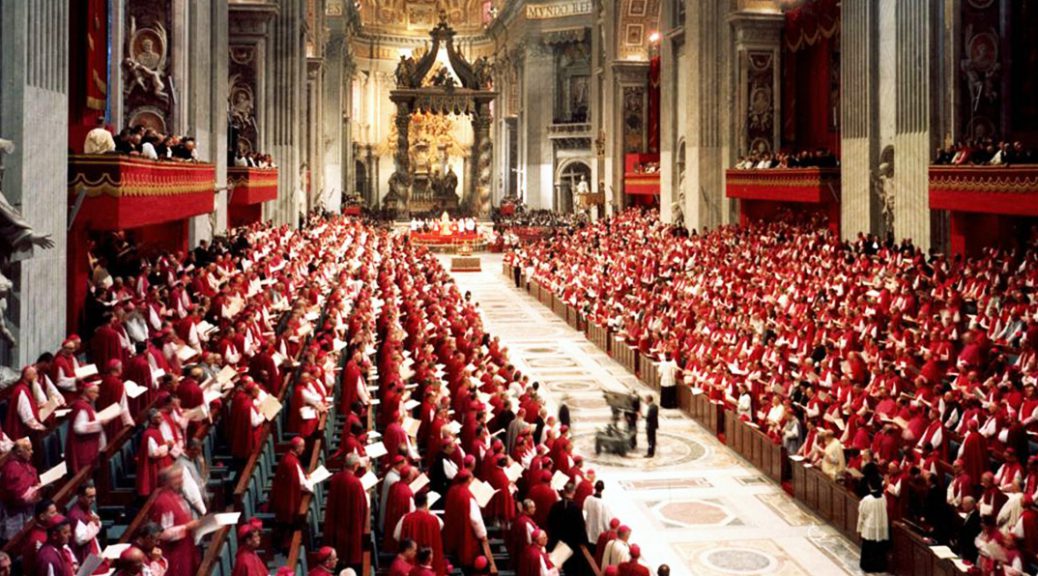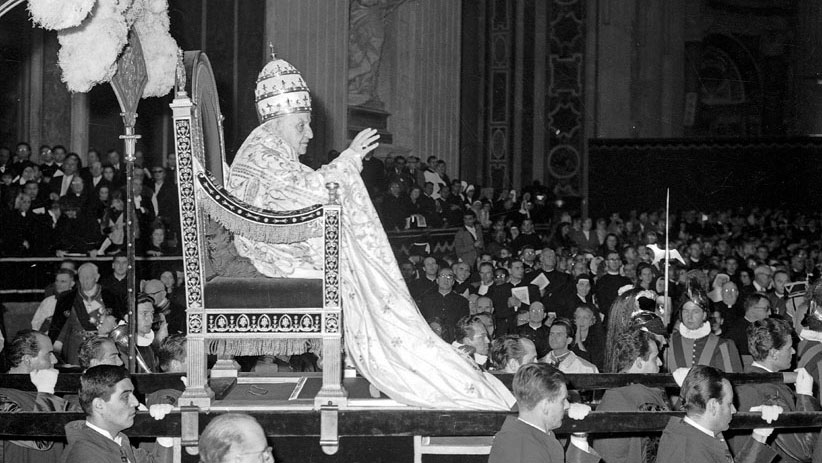Pope John XXIII Vatican II
October 11, 1962
Angelo Giuseppe Roncalli
Pope John XXIII Vatican II
The Times They Are a-Changin‘
When any long-established institution announces that it will convene to discuss its present and future, it is news. If there has not been such a meeting for nearly a century, the news is bigger. And if the long-established institution is nearly 2000 years old and has had only one of these convocations before, the news is huge.
Such is what happened on January 25, 1959 when Pope John XXIII announced that there would be a Concilium Oecumenicum Vaticanum Secundum, or what is commonly known as Vatican II.
The Church’s College of Cardinals had only elected John three months earlier on October 28, 1958 and deliberately elected an older person (76) more as a “caretaker” leader than one who would set the stage for change.
John
When Angelo Giuseppe Roncalli selected the name John for himself, a name, while common to previous popes, had not been selected for over 500 years, few realized the signal he sent. And when the “caretaker” of a 2000-year-old household announces that he will allow the discussion of major renovations, many within the Church’s leadership worried.
Keep in mind that Americans elected John F Kennedy president just shortly after and both these Johns, while very different in ages, presented a vision of innovation. JFK had his “New Frontier” and John Vatican II.
The Pope opened the Council on October 11, 1962 with the following words, “What is needed at the present time is a new enthusiasm, a new joy and serenity of mind in the unreserved acceptance by all of the entire Christian faith, without forfeiting that accuracy and precision in its presentation ...” (NYT article)
Catholic Boomers
When we think of the United States in the 1960s, the civil rights movement, the Vietnam War, black nationalism, drug use, hippies, assassinations, feminism, LGBTQ awareness, and other cultural changes dominate that historic landscape.
For Catholic Americans, those changes included what Vatican II brought about. In 1965, there were 46 million Catholics in the United States–23% of the total population and 71% of them attended Mass every week. When a part of any nation’s population is told that there will be changes in what they grew up thinking was unchangeable, the impact is great.
Pope John XXIII Vatican II
Ecumenical Council
In other words, for young Catholics, for those Catholic baby boomers, the notion that “the times they are ‘a changin'” was not unusual but normal, expected and acceptable.
- Sing during the Mass? Why not.
- Accept the Eucharist in one’s hand (after being told NEVER to touch it)? Fine.
- Receive wine as well during Communion? Better.
- The priest will face the congregation at a much simpler alter? Nice.
- The Mass will be in English, no more Latin? Great.
- Face the priest during confession? Scary.
- Extreme Unction is now called the Sacrament of the Sick.
- Nuns not wear such extreme habits? They have hair?
The changes and discussion that the Council created and Church members continued after its close on December 8, 1965 continue to echo. Neither John XXIII nor JFK lived to see the effects of their visions. Pope John died on June 3, 1963 and President John 173 days later.
Legacy
Writer Michael Novak wrote what he sees of the genie that Vatican II let out of the bottle, much to the chagrin of many Church leaders since: … sometimes soared far beyond the actual, hard-won documents and decisions of Vatican II. … It was as though the world (or at least the history of the Church) were now to be divided into only two periods, pre-Vatican II and post-Vatican II. Everything ‘pre’ was then pretty much dismissed, so far as its authority mattered. For the most extreme, to be a Catholic now meant to believe more or less anything one wished to believe, or at least in the sense in which one personally interpreted it. One could be a Catholic ‘in spirit’. One could take Catholic to mean the ‘culture’ in which one was born, rather than to mean a creed making objective and rigorous demands. One could imagine Rome as a distant and irrelevant anachronism, embarrassment, even adversary. Rome as ‘them.’ “


